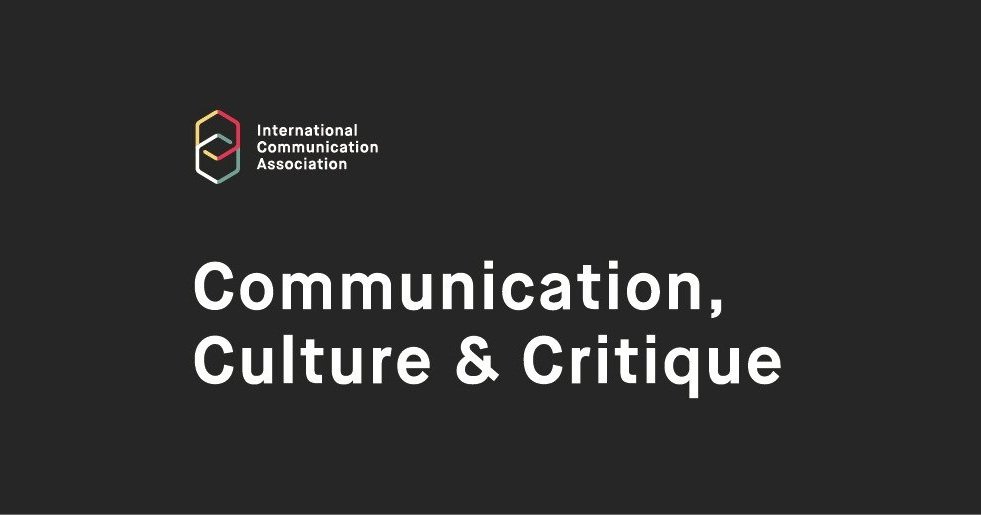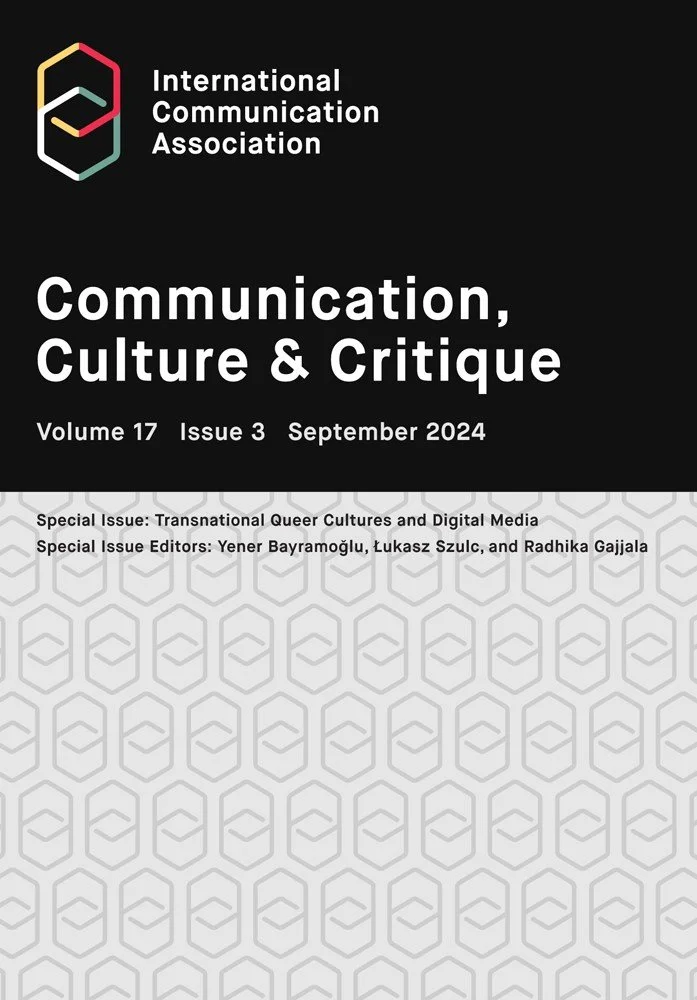
A journal of the International Communication Association, Communication, Culture and Critique (CCC) published its first issue in March 2008. Building on this tradition, the current editor Paula Chakravartty is working with a newly formed Editorial Collective of interdisciplinary scholars to work collaboratively towards developing politically engaged thematic issues. We are committed to feminist praxis and scholarship that substantively addresses the material colonial and racial lineages of modern capitalist media, culture and information infrastructures. We have a capacious understanding of Communication as a field and recognize that especially outside the context of the Global North academy, such disciplinary boundaries may be less meaningful. We therefore welcome contributions from adjacent fields. CCC continues to welcome critical scholarship from communication, media studies, cultural studies and science and technology studies with orientations towards political economy; critical race theory, Black studies, Indigenous studies and critical ethnic studies; feminist, queer and trans theory; postcolonial, decolonial and anticolonial theory and analysis; and other fields of theoretical inquiry engaging with questions of power.
Scope of the Journal
Communication, Culture & Critique (CCC) publishes high-quality, original scholarship. We are specifically interested in scholarship that is historically grounded, theoretically informed and addresses the role of media, technology and culture in relation to the myriad “crises” that critical scholars across the academy are increasingly attentive to whether political, economic, environmental or humanitarian. CCC remains committed to publishing scholarship from the vantage point of subjugated communities whether based geographically in the North or South.
